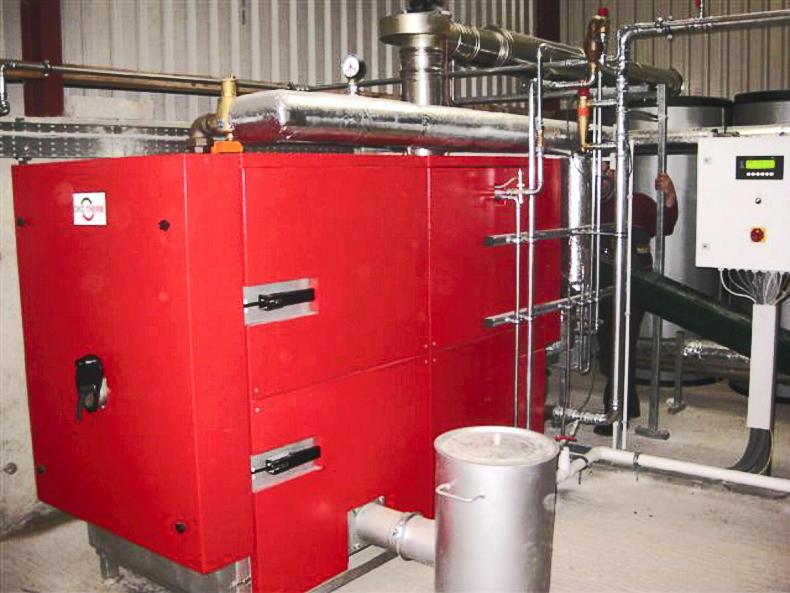The changes mean that around 1,800 RHI claimants will be moved to the tariff rates introduced for new installations accredited after November 2015 and until the scheme closed in February 2016.
This will apply for one year from the beginning of the 2017-18 financial year. A consultation will then be launched for a long-term solution to the overspend from the RHI scheme.
For biomass boilers between 19kWth to 199 kWth in size, the plan will involve a 6.5p/kWh tariff paid for the first 1,314 hours of heat produced each year from biomass boilers with payments capped at 400,000 kWh.
Under the original scheme introduced in November 2012, tariffs were paid at a flat rate and were uncapped.
Questions
During the debate in the assembly chamber, MLAs questioned the lack of consultation with industry on the legislation and at what stage a tender is at for inspections to be carried out on all biomass boiler accredited under RHI.
“Without rigorous, robust, 100% inspections, this interim solution will fall. I do not have a business plan for the inspections regime. I think that it is like a horse and carriage; both go together,” Finance Minister and Sinn Fein MLA Máirtín Ó Muilleoir said.
Economy Minister Simon Hamilton put forward the legislation and said that it was primarily to prevent a budgetary shortfall of around £30m in the next financial year.
“There are many other issues surrounding the RHI scheme that absolutely need to be investigated,” the DUP MLA said.
It is expected that a newly formed group of RHI boiler owners, the Renewable Heat Association NI, will pursue a legal challenge on the new regulations on the basis that boiler owners have invested heavily in boilers and now face significant cuts to payments.
Read more
The Cash for Ash scheme explained
Full coverage: RHI
The changes mean that around 1,800 RHI claimants will be moved to the tariff rates introduced for new installations accredited after November 2015 and until the scheme closed in February 2016.
This will apply for one year from the beginning of the 2017-18 financial year. A consultation will then be launched for a long-term solution to the overspend from the RHI scheme.
For biomass boilers between 19kWth to 199 kWth in size, the plan will involve a 6.5p/kWh tariff paid for the first 1,314 hours of heat produced each year from biomass boilers with payments capped at 400,000 kWh.
Under the original scheme introduced in November 2012, tariffs were paid at a flat rate and were uncapped.
Questions
During the debate in the assembly chamber, MLAs questioned the lack of consultation with industry on the legislation and at what stage a tender is at for inspections to be carried out on all biomass boiler accredited under RHI.
“Without rigorous, robust, 100% inspections, this interim solution will fall. I do not have a business plan for the inspections regime. I think that it is like a horse and carriage; both go together,” Finance Minister and Sinn Fein MLA Máirtín Ó Muilleoir said.
Economy Minister Simon Hamilton put forward the legislation and said that it was primarily to prevent a budgetary shortfall of around £30m in the next financial year.
“There are many other issues surrounding the RHI scheme that absolutely need to be investigated,” the DUP MLA said.
It is expected that a newly formed group of RHI boiler owners, the Renewable Heat Association NI, will pursue a legal challenge on the new regulations on the basis that boiler owners have invested heavily in boilers and now face significant cuts to payments.
Read more
The Cash for Ash scheme explained
Full coverage: RHI









SHARING OPTIONS